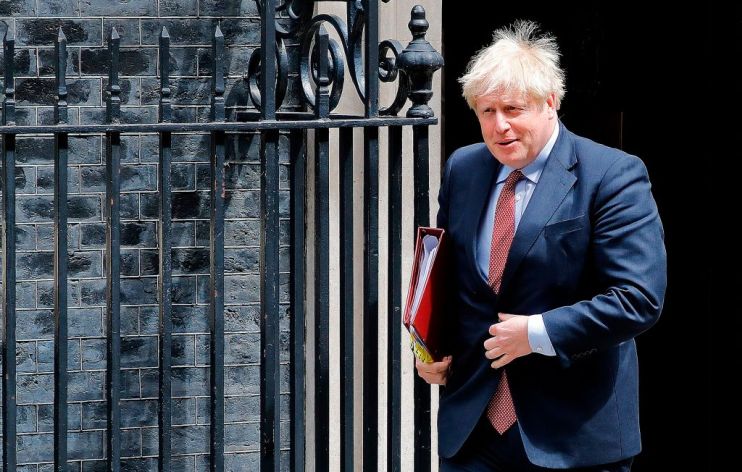England lockdown: Guidance on public transport and workplaces to be relaxed

From 1 August employers will be asked to decide on whether to bring staff back to workplaces after the coronavirus lockdown, Boris Johnson announced today.
Restrictions on public transport will also be lifted from today, he said, with anybody now allowed to use any method of travel they wish.
Speaking at a press conference, the Prime Minister said that employers would be given “more discretion” to make decisions to bring staff back.
Workers should only be asked to return if it is safe, Johnson said.
“It is only right that we give employers more discretion, while ensuring employees remain safe”, he said.
“If employees think it would be better and more productive to come into the office and if they can work in a Covid-secure way in the office then there should be discussions between employers and employees and they should take a decision”, he said.
“People have discovered lots of ways of working in the last few months. New patterns of work are emerging and companies are seeing opportunities to do things differently.
“Where employers think it’s time to come back and it can be done in a safe way that is what we think they should be doing but it’s for them and their employees to decide”, he added.
Before the Open newsletter: Start your day with the City View podcast and key market data
Yesterday the government’s chief scientific adviser Sir Patrick Vallance said that he could see no reason to relax the working from home advice.
Johnson said he agreed with the comments, insisting that it was a decision for individual employers to make.
However, he said that while ministers took the advice of its scientists “very seriously”, in the end, decisions on lifting restrictions were taken by elected officials.
The London Chambers of Commerce chief executive said it welcomed the “improved clarity” in Johnsons’ announcement.
“It is now essential that clarity and the change in tone towards what we can do (rather than what we cannot) is reflected in the decisions of the Mayor of London and the individual boroughs”, chief executive Richard Burge said.
“Employers should only be reopening offices once they have carried out a Covid-19 risk assessment, including consultation with their staff.
“Commuting remains the biggest barrier for many employees returning to the office, and it’s imperative that businesses continue to play their part in mitigating London’s public transport dilemma during the pandemic”.
The IoD’s director of policy Edwin Morgan that though many businesses were keen to return to workplaces there was still a lot of caution.
“Directors need to balance the risks, and won’t want to increase the possibility of closures down the line by rushing back. On top of this, not everything is in a company’s control.
“Childcare is an issue for many employees, and even if the guidance is changed, some staff who use public transport will still be concerned. Businesses will have to deal sensitively with these issues”.
Next steps in reopening ‘roadmap’ laid out
The announcements came as Johnson laid out the government’s new “roadmap” for further easing lockdown restrictions.
From the same date, restrictions on leisure facilities such as bowling alleys, skating rinks, casinos and beauticians will be relaxed.
Shielding restrictions for vulnerable people will also be paused at the end of this month.
The government will also pilot larger gatherings in sport stadia ahead of plans to bring back some spectators in October.
There was good news for those planning weddings as well, with 30 people to be allowed at wedding receptions from next month.
British Chamber of Commerce director-general Adam Marshall said: “Businesses that have so far been unable to open will be pleased to finally have a timetable for reopening so they can plan ahead.
“Government must consider what further support they can offer to firms that will need to remain closed into the autumn, beyond the end-date for government support schemes and many businesses’ cash reserves.”
Johnson said that the government was also looking at plans to bring back conferences and business events later in the autumn.
He said that he hoped there would be a further return to “normality” in November at the earliest, “possibly in time for Christmas”.
Johnson said that relaxing the measures was contingent on the UK continuing to suppress the virus, but insisted that “it is very important we hope for the best but plan for the worst.”